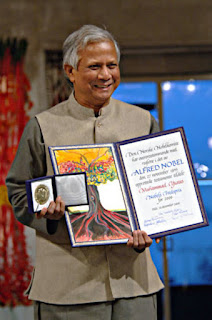MY FIRST ARTICLE PUBLISHED 30 YEARS AGO
Half
Knowledge is Worse Than Ignorance
First
Prize in Essay Contest
(CSR-January
1992 Issue)
Knowledge upon its brimful
waters holds the mirror of Narcissus and the unwary upstart is enamoured of his
own glorified reflection. It is a will-o-the wisp to the untrained eye that
from the marshes of ignorance shimmers illusively only to end in a deeper
quagmire of confusion. Its revelation to a novice, (as once Shakespeare wrote
in a different context) is as:
“Brief
as the lightning in the collied night,
That
in a spleen unfolds both heaven and earth,
And
ere a man has power to say ‘Behold’
The
jaws of darkness to devour it up
So
quick bright things come to confusion”
The early draughts of the
Pierian intoxicate, and sober only towards the last dregs of its perennial
spring. Thus, wisdom lies not in self-assumed omniscience but in the continuing
realization and thirst of one’s ignorance.
All errors committed by
humankind are, in fact, a direct consequence of the improper understanding and
application of knowledge. The steady rectification of faulty innate perceptions
and their execution has led to human progress and development. Yet as man has
gained in the understanding and influence over his environment, he has at the
same time risked the hazards of his still primitive and evolving socio-scientific
growth. His half-knowledge in the realm of science has been unable to offset the
contrary side-effects of his advancing technological prowess.
Environmental disorders
which were hitherto unknown are ominously engulfing the world in a pall of
dismal gloom. The intractable and untamed giant of science is running amok,
bringing in its train the ills of industrial pollution, accompanied with acid
rains and inordinate heating of the globe, chemical and nuclear disasters,
depletion of forest cover and wild life reserves etc., that could well nigh
bring the world to the brink of doom. Man has yet to graduate from and master
the challenges and dynamics of science.
In the province of
polity, we find the confused and tumultuous journey of the ‘Idea’ struggling to
attain its dialectical consummation. It has evolved and run through many
calamitous wars, trying to reconcile with the tenets of despotism, feudalism,
theocracy, dictatorialism, capitalism, communism and now it has tentatively
reached to the ideals of welfare state and democratic secularism. Whether it
has reached its ultimate destination, it is difficult to say, but in its
ongoing search for a better political order, it has left behind many indelible
blots on the pages of human history. It unrealised pursuit for a utopian system
of governance has cost mankind a very heavy price.
From time immemorial, the
misconception of national, racial or communal superiority has prevented or
throttled the creative faculty of man. It has been the cause of many
undesirable feuds and shameful acts of exploitation that has deprived many
humans from the full development of their potential. The whims and bias of
seasoned and supposedly civilised minds has waylaid the course and purpose of
knowledge and brought more misery to mankind than in the primeval days of
existence.
The cult of religious
fundamentalism rising all over the world is another glaring example of half
knowledge and misapprehension of the true religious essence. The growth in
materialistic outlook towards life has developed a sense of guilt in the hearts
of religious communities. Incapable of rising above the snares of the flesh and
unable to attain new heights of spirituality they find their respective faiths
in danger of extinction. Instead of rejuvenating the spiritual and ethical
cause of their religion by practising it themselves they put the blame of their
decadence on other communities. The fundamentalists of today must take heed
from the common axioms of every religion, i.e. fraternal love and peace, mercy
and generosity, subjugation of baser instincts, and subservience to the
universal Benefactor. They should follow the example set by their religious
leaders who suffered great tribulation at the hands of the depraved and
ignorant men without any ill-feeling or retaliation, and who came as the
saviours of the whole world and not of any particular community.
If ignorance would have
been the lot of Man, Nature would have continued on its gradual yet often
erratic ways. But the greater awareness of Man has made him interfere with the ways
of the world, so much so that he now bears the world’s weight on his Herculean
shoulders and could least afford a Hamlet-like vacillation. Thus, we have found
that unmastered knowledge could prove worse than ignorance.



Comments
Post a Comment